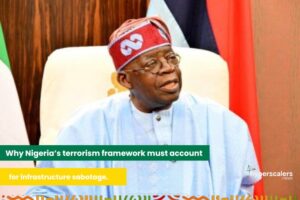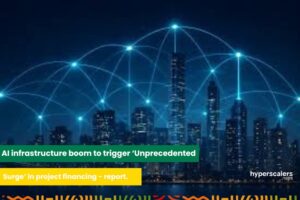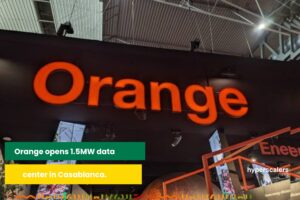As Nigeria commemorates its 63rd year of independence, beneath the surface of the nation’s bustling cities lies a quiet revolution reshaping industries, fostering innovation, and propelling the country into the digital age. This revolution, often obscured from the limelight, is the driving force behind Nigeria’s booming technology industry.
In the second quarter of 2023, the Information and Communication Technology (ICT) sector made a significant mark, contributing 19.54% to Nigeria’s real Gross Domestic Product (GDP), as reported by the National Bureau of Statistics (NBS). Beyond statistics, the ICT sector has played a pivotal role in propelling Nigeria’s GDP growth and generating employment opportunities. It has been the catalyst for a surge in tech startups, known for their innovation and ability to attract substantial global funding.
Despite the persistent challenges, such as macroeconomic issues, power shortages and limited fixed broadband infrastructure, Nigerian startups have demonstrated remarkable resilience and consistent growth. They have not only attracted billions of dollars in investments but have also given rise to a majority of Africa’s unicorns, symbolizing their impact on the continent’s tech landscape.
The true essence of ICT’s contribution extends beyond economic numbers. It permeates the very fabric of daily life, particularly in urban centers. Fintech companies are diligently working to expand financial inclusion, while technology is enhancing healthcare services and serving as a significant driver of job creation.
Connectivity, data center and cloud operators are the major drivers of this digital revolution. Below is a list of some operators in Nigeria that are bridging the digital divide in Nigeria.
MainOne: This telecommunications and data solutions company has played a pivotal role in expanding access and evolving the West African telecoms market. MainOne built the first private submarine cable, which reduced international bandwidth costs by 50% and fostered the re-birth of ISPS in West Africa. MainOne played a critical role in enabling internet access across West Africa and moving the broadband penetration needle rom less than 10% in 2010 to 40%+ today. MainOne’s efforts have been rewarded with multiple awards and recognition for the company and its founder/Chief Executive Officer, Funke Opeke, MON. Under the MDXI brand, MainOne also built data centers in Nigeria, Ghana and Cote DÍvoire for data storage and was acquired by Equinix last year.
MTN Nigeria: Since its initial investment of $285 million for its license, MTN has led exponential growth in Nigeria, connecting nearly a million telephone lines in its first year of operation. Over two decades, Nigeria’s telecommunications industry has witnessed a remarkable transformation, expanding from a mere 400,000 NITEL lines in 2001 to 297 million connected telephone lines by 2023, thanks to mobile network providers like MTN. MTN’s extensive reach, including 39% market share and 73.1 million users across Nigeria, solidifies its position as the country’s leading GSM service provider.
MTN’s contributions extend beyond connectivity; the company invested in the nation’s data backbone and played a pivotal role in improving telecommunication services. Additionally, the company’s investments have resulted in significant job creation, tax contributions, corporate social investments, capital investments, and support for economic development. MTN’s contributions have had a profound impact on Nigeria’s GDP, with telecoms’ contribution increasing from 7.7% in 2012 to about 19% in the second quarter of 202. Overall, MTN’s journey in Nigeria reflects its commitment to advancing digital access, fostering economic growth, and transforming lives. Under its wunderkind CEO, Karl Toriola, MTN became the first publicly listed company to hit the N2 trillion mark in revenues, doubling its revenue in less than 3 years, and especially during the COVID-19 pandemic.
Broadbased Communications: Broadbased Communications is a Metropolitan Fiber Optic Network Operator, Private Network Links Operator (PNL), International Data Access Gateway Operator (IDA), Value Added Services Operator and Internet Service Provider (ISP). It is best known for its role as a Last Mile Carrier Grade Operator of Fiber Optic Network connectivity for Telecom Operators, and ISPs. Broadbased Communications provides fiber optic network connectivity for mobile network operators, 4G network operators, all the submarine cable landing stations, all major internet service providers, all data centers, Nigeria Internet Exchange Point (IXP), major global telecom operators, all the banks, the Nigerian Stock Exchange, all electronic payment switching and processing companies, oil companies, and major corporate firms and residential estates. Broadbased Communications CEO, Prince Henry Iseghohi has earned multiple accolades for his work providing open-access infrastructure in Nigeria.
Tizeti Networks: Tizeti is West Africa’s pioneer solar-based internet service provider. As part of its commitment to building the infrastructure for Africa’s digital economy, Tizeti is widening internet access in Africa with solar-powered masts, to deliver the most cost-effective and reliable unlimited internet services. The company continues to drive the internet revolution across West Africa, with presence in 15 states in Nigeria, 3 regions in Ghana and Cote DÍvoire. Within its 11 years of operations, Tizeti’s innovative solutions has impacted significantly in the telecommunications industry with far-reaching results and has earned the company the position of a top ISP in Nigeria, by coverage and active subscriber base. Tizeti is the number #1 fixed operator in Nigeria and has earned several awards for itself and its CEO, Kendall Ananyi.
ipNX Nigeria: ipNX is a leading Nigerian ICT company that provides connectivity, internet, and telecommunication services to individuals and businesses. They have a strong presence in both urban and rural areas, contributing to bridging the digital divide. Over the years ipNX has been at the pioneering forefront of the ICT industry with a track record of innovation and is a leading operator in Nigeria’s Fibre-To-The-Home (FTTH) space.
ipNX and its CEO, Ejovi Aror, have earned awards for their commitment to wiring up parts of Nigeria with fiber.
Rack Centre: Rack Centre, a leading data center provider in Nigeria, has made a substantial impact on the nation’s digital landscape and achieved a significant milestone in 2014 by becoming the first data center in West Africa to be certified as Tier III by the Uptime Institute and Africa’s only certified carrier neutral tier III constructed data centre. Rack Centre’s carrier-neutral status, combined with its extensive connectivity, has positioned it as a crucial hub for data interconnectivity in the region, with 27 major mobile network operators and Internet Service Providers connected to its facilities.
Rack Centre’s Nigeria facility recently received the EDGE sustainability building certification, and is believed to be the first of any data centre in Europe, Africa and Middle East to receive this award. Rack Centre is part of a US$250m buy and build platform established by Actis and is currently led by Ezekiel Egboye, Folu Aderibigbe and Nozipho Sibanda.
Globacom (Glo): Globacom, commonly known as Glo, is a prominent telecommunications company in Nigeria. Founded in 2003 by Nigerian billionaire Mike Adenuga, Glo quickly rose to prominence as one of the leading mobile network operators in the country when it introduced per second billing, The company has played a significant role in expanding Nigeria’s telecommunications sector, offering a wide range of services, including mobile voice and data, broadband, and enterprise solutions. Glo has consistently invested in network infrastructure, expanding its coverage and improving the quality of services. With its competitive pricing and innovative offerings, Glo has attracted a substantial subscriber base, to become Nigeria’s largest mobile network.
IHS Nigeria: IHS is one of the largest independent owners, operators and developers of shared communications infrastructure in the world. It provides mission-critical communications infrastructure to its customers, most of who are leading MNOs, who are able to provide wireless voice and data services to their end users.
In Nigeria, where network connectivity is crucial, IHS has significantly contributed to expanding the reach of mobile network operators. By providing cost-effective and reliable infrastructure solutions, IHS has enabled telecom companies to extend their services to remote and underserved areas. This has not only improved connectivity for millions of Nigerians but also stimulated economic growth and innovation in the telecom sector. IHS Towers is led in Africa and Nigeria by Sam Darwish and Mohamad Darwish respectively.
Medallion Communications: Medallion Communications specializes in providing data center and colocation services. They have played a crucial role in improving data security and storage capabilities in Nigeria. Medallion Communications was set up as the backbone supporting Nigeria’s ICT and telecommunications industry in the area of carrier-neutral infrastructure sharing and interconnectivity.
Medallion sets up Interconnect Houses where operators not only have the opportunity to interconnect with multiple operators in one location but equally share the available telecom infrastructure thereby reducing overhead. Medallion deploys a robust and efficient billing and settlement infrastructure that is transparent in the resolution of interconnect related billing issues.
Medallion’s datacenters are today the most connected facilities in West Africa, and it is the region’s number one peering point connecting the sub-region to the rest of the world, 70% of all internet traffic switched at the Nigeria Internet Exchange happening at Medallion.
Medallion was recently acquired by Digital Realty and its CEO, Ikechukwu Nnamani has received several accolades for his company’s pivotal recognition.
WIOCC/OADC: The West Indian Ocean Cable Company (WIOCC) Group is a leading provider of wholesale internet services in Africa. The company operates a submarine fiber optic cable network that connects Africa to Europe, Asia, and the Middle East. WIOCC also offers a range of other services, including data center services and cloud services. In 2021, it raised US$200 million to expand its network connectivity within Africa and internationally. The company added US$44 million to support its investment into subsea systems and the deployment of a pan-African data centre ecosystem, alongside developing its terrestrial fibre-optic networks around Africa.
In South Africa, WIOCC owns a 16Tbps-ready hyperscale national backbone, coastal corridor routes, metro networks and points of presence, and is deploying more than 4,500km of fibre and 84 points of presence (PoPs), in Nigeria.
Open Access Data Centres (OADC) – a WIOCC Group Company – has been established to transform the provision of data centre services for Africa. OADC is investing over US$500 million in deploying a pan-African platform of world-class, Tier III certified, open-access, carrier neutral data centers that will deliver an unparalleled client experience, offering expert assistance and support, partnership in tailoring bespoke solutions and leading-edge information systems to support client business decision-making. WIOCC CEO, Chris Wood has tapped a veteran data center executive, Ayotunde Coker to drive its data center and colocation ambitions in Africa.
Africa Data Centers: Africa Data Centers (ADC) is a leading provider of data center solutions across the African continent. With a strategic presence in key African markets, ADC plays a pivotal role in enabling businesses and organizations to harness the power of data, cloud computing, and digital transformation. As Africa’s digital landscape rapidly evolves, ADC is at the forefront, offering state-of-the-art data center facilities and services designed to meet the unique needs of enterprises, government agencies, and technology providers.
Africa Data Centers has a presence in key African markets, including South Africa, Nigeria, Kenya, and Egypt, with plans for expansion into additional countries to further bolster its footprint on the continent. ADC Regional Executive, Dr Krishnan Ranganath has received accolades for his roles in Nigeria’s data center industry.
VDT Communications: Since its launch in 2001, VDT has grown to become a leading provider of broadband services in Nigeria. Presently, the company boasts a nationwide presence with 143 Points of Presence (POPs) across all states in Nigeria and the Federal Capital Territory (FCT), Abuja. This extensive network allows VDT to offer prompt, high-quality service support to its customers throughout the country.
The company’s services encompass a broad spectrum, including enterprise connectivity, corporate internet, 4G LTE broadband, SME solutions, and more. VDT Communications has achieved impressive network infrastructure with a 99.999% service availability guarantee, supported by multiple carrier trunks and low latency. Furthermore, the company has attained international recognition through ISO certifications for quality service and IT service management. VDT Communications and its CEO, Biodun Omoniyi have earned multiple accolades, solidifying the company’s position as a key player in Nigeria’s broadband industry.
Liquid Intelligent Technologies: Liquid Intelligent Technologies is a leading provider of digital infrastructure and services in Africa. The company operates a network of over 100,000 kilometers of fiber optic cable across the continent, and it operates data centers in several African countries, including Nigeria.
Liquid Intelligent Technologies is having a significant impact on the Nigerian data center and cloud industry. The company’s fiber optic network is helping to improve the reliability and performance of internet services in Nigeria. Liquid Intelligent Technologies’ data centers are also helping to make Nigeria a more attractive destination for foreign investment. Liquid Intelligent Technologies, is a subsidiary of Cassava Technologies, a pan-African technology group, and is led by veteran technology player, Wole Abu.
21st Century: Started in 1997, 21st Century is easily one of Nigeria’s oldest players in digital infrastructure. It was the first company to build a fiber connectivity and Data Centre infrastructure in Nigeria and has been investing in connectivity, data centers, technology platforms, power, payment and security platforms.
21st Century is a leading provider of IT infrastructure and services in Nigeria. The company operates a Tier III data center in Lagos and offers a wide range of cloud services, including IaaS, PaaS, and SaaS. 21st Century is also a leading provider of managed services, including application management, infrastructure management, and security management. 21st Century Chairman, Wale Ajisebutu is well known in the Nigerian industry and continues to lead the 26 year old company.

Galaxy Backbone (GBB): Galaxy Backbone is a significant player in Nigeria’s information and communication technology (ICT) landscape, with a strong focus on advancing the nation’s digital capabilities. Established in 2006, the company has emerged as a leading ICT infrastructure and services provider, serving both public and private sector entities. At its core, Galaxy Backbone operates the National Information Technology Infrastructure, a comprehensive network that interconnects government ministries, departments, and agencies (MDAs) across Nigeria. This infrastructure facilitates seamless data exchange, collaboration, and the delivery of e-government services, contributing to increased transparency, accountability, and enhanced public service delivery.
Galaxy Backbone offers a diverse portfolio of services, including state-of-the-art data center solutions, secure and reliable internet connectivity, cloud services, and various ICT-related offerings tailored to the unique requirements of its clients.
Galaxy Backbone recently completed the construction of its Tier 4 data center in Kano, which will serve as a backup for the National Shared Services Center. GBB also has a significant Fiber Optics Backbone Network that spans over 2,500km, as well as the Abuja Metro Fiber Network with a reach of 1,500km.
GBB’s CEO is Professor Muhammad Bello Abubakar, and the company has received accolades for its infrastructure depth as well as its timely response to the COVID-19 pandemic.
Nigerian Communications Commission (NCC): It is impossible to talk about the key stakeholders in data center and connectivity in Nigeria without mentioning the role played by its regulator, the Nigerian Communications Commission (NCC). Established in 1992, the NCC is tasked with creating an enabling environment for healthy competition among telecom operators, ensuring the protection of consumer interests, and promoting universal access to telecom services across the country. It achieves these objectives through the formulation and enforcement of policies, regulations, and guidelines that govern the sector.
One of the NCC’s key responsibilities is the allocation and management of scarce resources such as spectrum and numbering resources. By efficiently managing these resources, the NCC ensures that telecom operators have the necessary infrastructure to provide high-quality services to millions of Nigerians. Additionally, the NCC promotes innovation and investment in the sector, fostering economic growth and job creation. Its efforts have led to increased mobile penetration, expanded broadband access, and improved telecommunications services, making it a critical player in Nigeria’s digital transformation journey. The success of the NCC started with its pioneer Executive Vice Chairman (EVC), Engr. Ernest C.A. Ndukwe, and continued through the years to current EVC/CEO, Professor Umar Garba Danbatta. The Commission has received multiple awards for its crucial role in shaping the Nigerian telecommunications industry.
Internet Exchange Point of Nigeria (IXPN): The Internet Exchange Point of Nigeria (IXPN) serves as a critical hub for internet traffic exchange within the country. The exchange plays a pivotal role in improving the efficiency and speed of data transmission among various internet service providers and networks in Nigeria. By providing a neutral and secure platform for the exchange of internet traffic locally, IXPN helps to reduce latency, save on international transmission costs, and enhance the overall internet experience for Nigerians. As Nigeria’s digital landscape continues to evolve, IXPN’s presence remains essential for fostering a robust and interconnected internet ecosystem, benefiting both businesses and individuals in the country. IXPN and its CEO, Muhammed Rudman have received several awards.
These operators have enhanced business efficiency, empowered startups to innovate and compete on a global scale, contributed to data localization, created jobs and improved the quality of life for Nigerians. But it is not yet uhuru: we urge them to continue to deepen digital penetration, not only in capital cities, but across Nigeria.
We celebrate these operators that are collectively shaping Nigeria’s digital landscape. As Nigeria advances further into the digital era, we encourage these players to remain at the forefront of facilitating technological progress and innovation, towards positioning Nigeria and Africa in the global economy.





